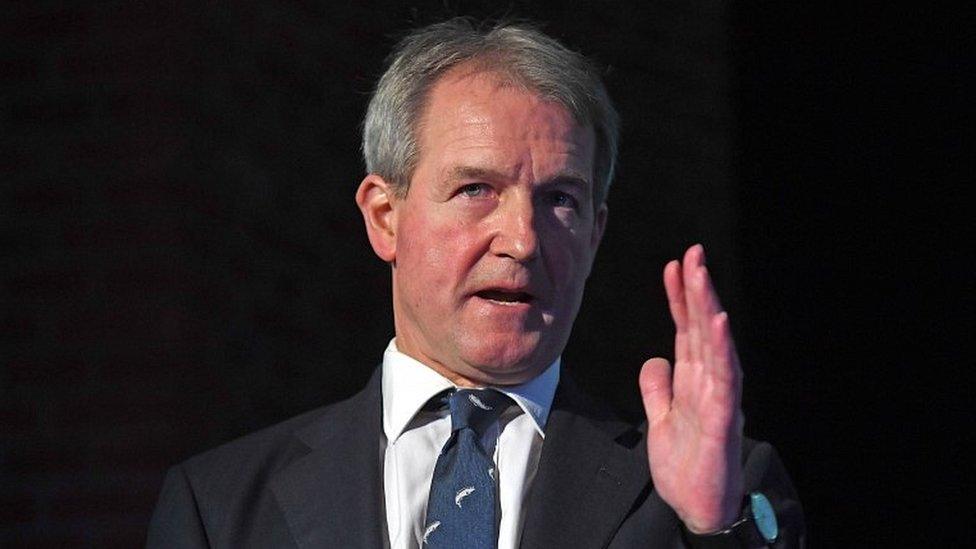North Shropshire: What to expect from an unexpected by-election
- Published
Local people highlight the issues facing the constituency
People were not expecting a by-election here in north Shropshire. They have had Conservative MPs here since the 1830s and Owen Paterson was a popular figure who extended his majority to just under 23,000 in 2019.
On the day he resigned, following the investigation which found he had breached parliamentary rules on paid-lobbying, I stood on Church Street in the centre of the constituency's largest town, Oswestry, and listened as multiple people told me "yes he had to go", but it was a "bit of a shame".
But a by-election is happening and while this rural seat must be considered by any measure a safe Tory seat, the manner of Mr Paterson's departure amid a swirl of accusations of "sleaze", perhaps opens the door just a little.
As Debbie Spires, who works at the Beechtree Community Centre in Whitchurch, tells me: "Well I like that saying, if you do what you always do, then you get what you always got, and I would like to see some fresh ideas, that's what a place like this really needs".
Her role at the centre is about getting the long term unemployed back to work.
Many of her clients are on Universal Credit and the end of the £20 uplift has hit them hard.
Public transport, or the lack of it, is another big issue. By physical size, North Shropshire is the third largest constituency in the West Midlands region.
Ms Spires tells me about a client who comes to see her once a week, their bus fare is £5.40, this she says is a "huge chunk of money for someone on Universal Credit struggling to make ends meet".
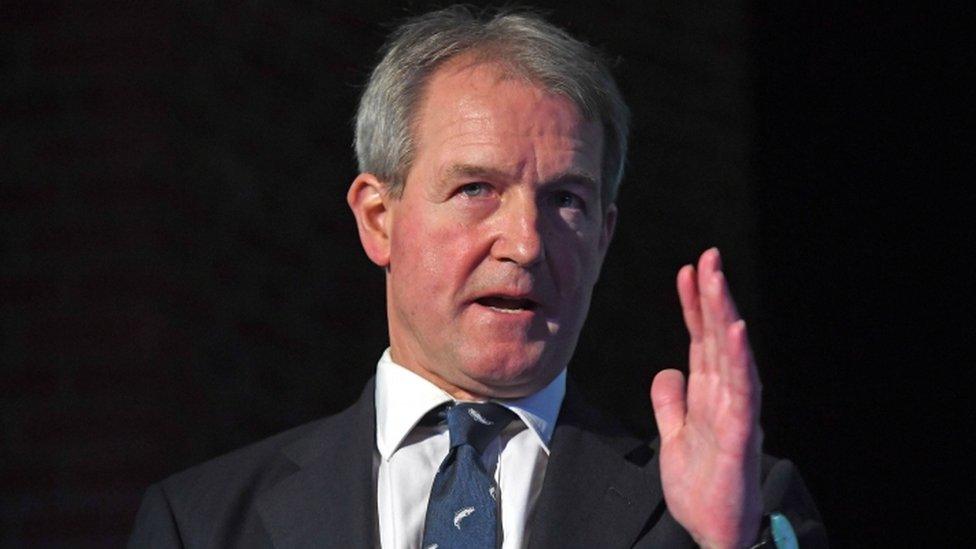
Owen Paterson resigned as North Shropshire MP following a row about his other jobs
We discuss the government's levelling up agenda and the fact the county recently missed out on three bids for levelling up cash in the spending review, perhaps she says because the area is seen as being rural and prosperous.
"I moved here from London five years ago and my chocolate box idea of Whitchurch quickly faded. There is poverty and there is isolation particularly for older people living outside the constituency's five small towns," she said.
Shropshire Council, recently bid for £98m in government funding to improve the bus network in the county.
One thing you can't help but notice in North Shropshire is the importance of agriculture. Not just farming itself, but all the subsidiary industries, the abattoirs, plant hire, food producers, dairies and markets.
Malcolm Roberts is well known in these parts, he farms mainly sheep and beef cattle and has long been involved with the local National Farmers' Union (NFU).
He's also a Conservative party member.
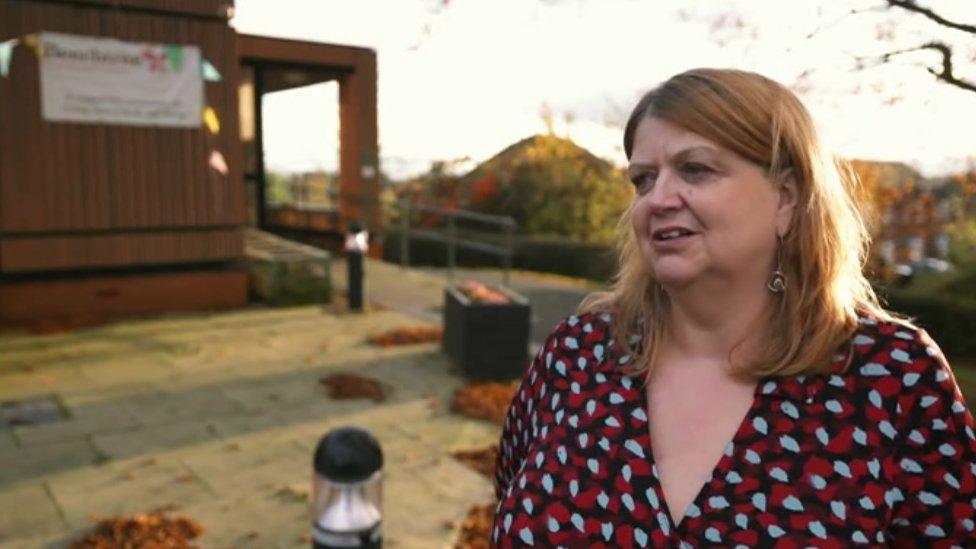
Debbie Spires said she had been struck by the poverty and isolation experienced in parts of the constituency
He tells me if a person gets elected as an MP then that should be their job. I ask him if the row about MPs' second jobs is cutting through and he tells me: "You go down the local market, or to the depot to get sheep feed and people are talking about it, so we'll have to see."
What is clear from talking to Malcolm is that farmers like him want someone who will advocate for them at Westminster.
We're talking in one of his large indoor sheep sheds on the farm. These animals, he tells me, are waiting to be collected for slaughter and the biggest worry on farms right now and in the related industries like abattoirs and dairies is labour shortages and rising costs.
"Coming on the back of Brexit, we can't get enough people to do the work, these are skilled jobs", he said.
Longer term, his concerns turn to post-Brexit trade deals that could he says put the meat he and his neighbours produce at a disadvantage.
NHS a big issue
If there's one topic that cuts across communities, class and politics in North Shropshire, it is the NHS. Lines on a map do not mean too much here, this is border country and if you're in the back of an ambulance in North Shropshire, you're just as likely to be taken over the border to Wales and to Wrexham Maelor Hospital.
The Ockenden review into baby deaths at the county's hospitals and a massive reorganisation of health services known as Future Fit - now predicted to cost over half a billion pounds - have both dominated headlines.
Earlier this year the closure of local ambulance stations in Market Drayton and Oswestry sparked furious local campaigns.
Kayleigh Griffiths lost her baby, Pippa, in 2016 and now campaigns for local services, she says: "We have all kinds of problems, hospitals, a mental health crisis, maternity, it's such a big area and the ambulance waiting times are now longer than they've ever been before".
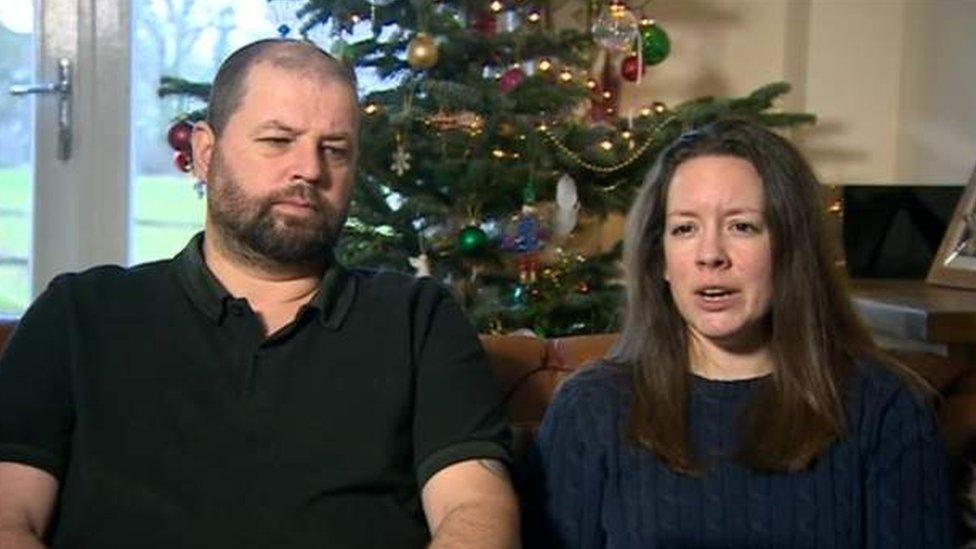
Kayleigh Griffiths (R) campaigned alongside Rhiannon Davies after their babies died
Mrs Griffiths is quoting the latest figures on response times from NHS England, while West Midlands Ambulance Service recently warned patients in Shropshire are being put at "catastrophic risk" of harm, because of delays in handovers at hospitals.
At the same time earlier this month CQC inspectors found the Shrewsbury and Telford Hospitals NHS Trust (SaTH) which runs the county's two main hospitals - while improving is still "inadequate", and Mrs Griffiths says it is this kind of ongoing failure that the candidates in this election "really need to focus in on and show their support for the NHS".
She doesn't want to talk about the politics too much, but when I press her on whether so-called sleaze will influence voters, or change minds in a place where the Conservatives have always won, she pauses and smiles a little wryly and says: "It has to, doesn't it?"

Follow BBC West Midlands on Facebook, external, Twitter, external and Instagram, external. Send your story ideas to: newsonline.westmidlands@bbc.co.uk , external
Related topics
- Published25 November 2021
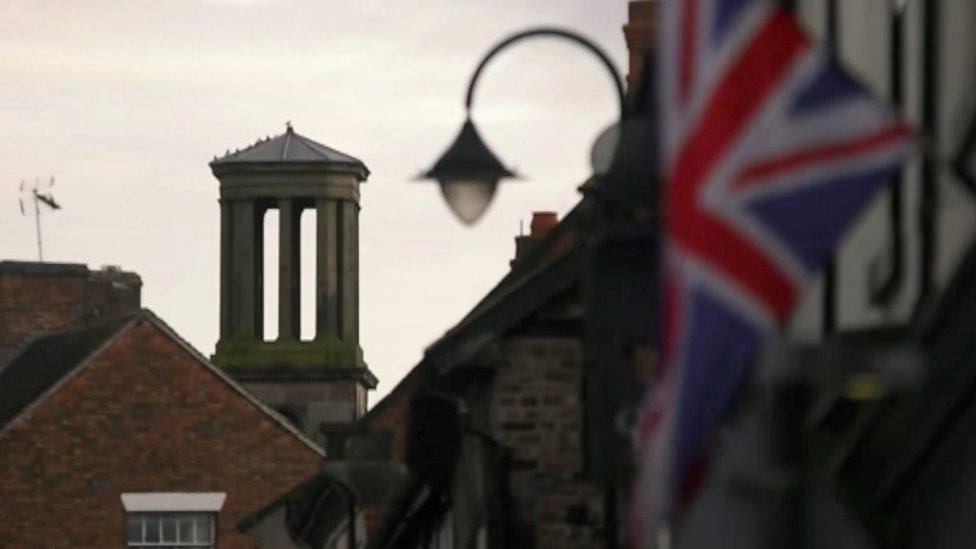
- Published2 December 2021
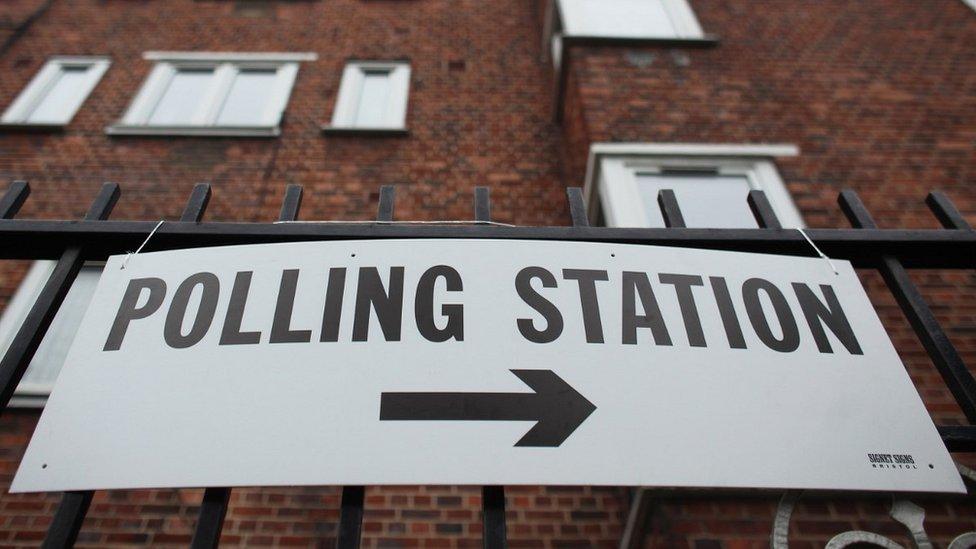
- Published22 November 2021
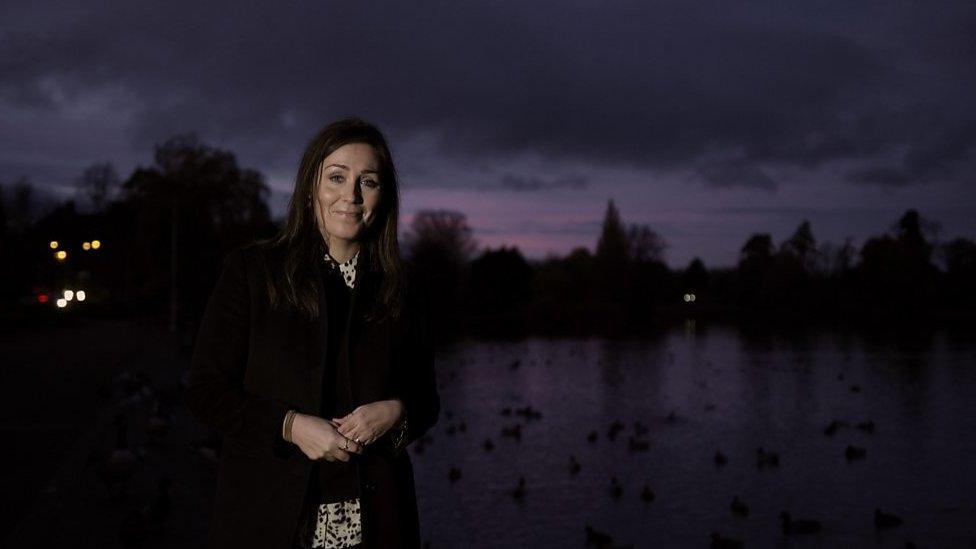
- Published16 November 2021
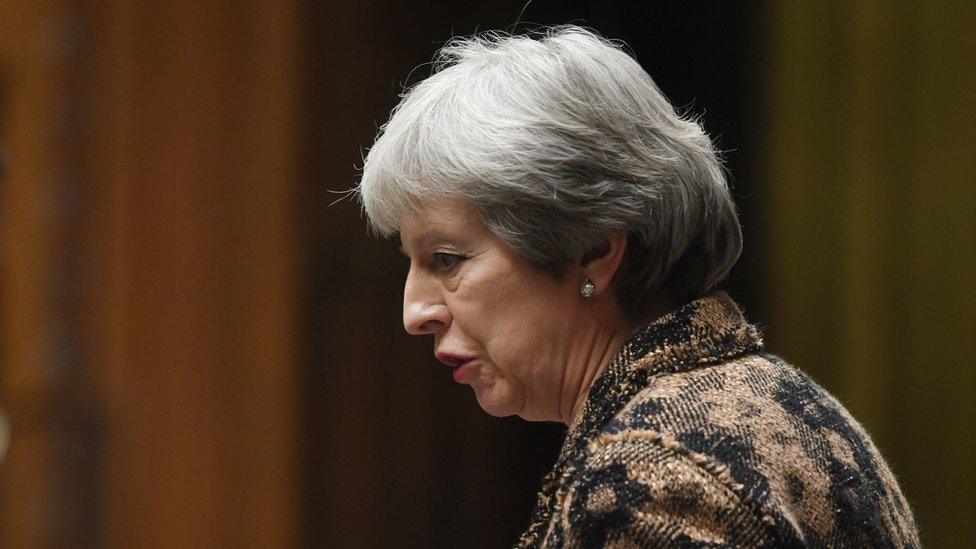
- Published14 November 2021
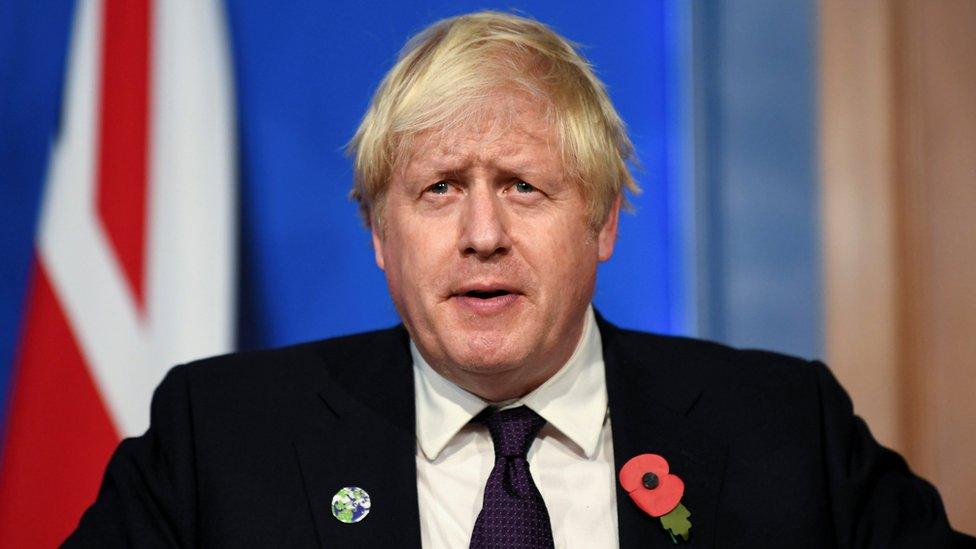
- Published10 November 2021
